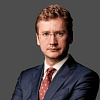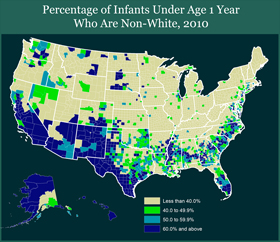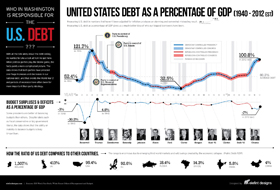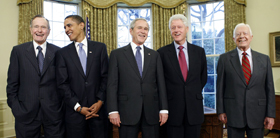Notably, discussions of the new world order broke out precisely on the 20th anniversary of the collapse of the USSR. The Afghanistan-Iraq trap for the U.S. and NATO, the global financial crisis, the ascension of G20, harsher global competition against the backdrop of formerly marginal states on the rise, and monumental social shifts in the Middle East have increased the number of issues on the international agenda within the seemingly abstract problem of a post-American world. While many still regard the breakup of the Soviet Union as the starting point of modern history, there is increasingly more evidence that the world is entering a new era: the decline of the unipolar setup.
Notably, discussions of the new world order broke out precisely on the 20th anniversary of the collapse of the USSR. The Afghanistan-Iraq trap for the U.S. and NATO, the global financial crisis, the ascension of G20, harsher global competition against the backdrop of formerly marginal states on the rise, and monumental social shifts in the Middle East have increased the number of issues on the international agenda within the seemingly abstract problem of a post-American world. While many still regard the breakup of the Soviet Union as the starting point of modern history, there is increasingly more evidence that the world is entering a new era: the decline of the unipolar setup.
The Past Unveiling the Future
Russian political science tends to refrain from forecasting beyond a 15-year time limit in the belief that long-term predictions are a priori schematic. Generalizations of this kind – massive, clumsy and paradoxical – are standard for Western intellectuals, while Russians deem such worldviews impractical since the past 30 years have proven that the present is fit only for short-term political assumptions. Long-lasting trends in high-tech, transportation, energy, outer space, and other spheres do not explicitly unveil the political effects of breakthroughs in these fields. Long-term predictions require a different toolkit, similar to the principles of historical reconstruction.
In his monograph The Historical Experience of the U.S.A. (2010) Russian Americanist Dr. V.V. Sogrin examines American history using the civilizational approach aimed at analyzing the successive basic economic, social, political and cultural features of this society. Projected into the future, those may as well turn out to be useful in predicting the country's profile in 100 years.
In the first place is liberal capitalist individualism as the highest degree of individualism, or citizens' rush towards materialist values and economic wellbeing: a nationwide value.
Feature two implies the origin and roots common with Britain, which takes the American historical and cultural tradition deeper into the past than the 17th-century arrival of the first settlers in the New World (the Anglo-Saxon archetype). The core of the American cultural tradition has been made around such norms and institutions as private property, representative rule, division of powers, common law, and respect of civil rights and liberties.
Feature three deals with the American frontier phenomenon, i.e. the expansion of U.S. geographical borders in the 17th-19th centuries, which has been preserved as a parameter of national culture, in the belief that the possibility of a better life exists in new areas if the potential for the material growth or socio-economic status mobility at the previous location is depleted or unsatisfactory.
Feature four is the advantageous geographical situation vis-à-vis other leading states. Historically, oceans have protected the U.S.A. from involvement in major military and political conflicts. At that, America only gained economic momentum as a result of each world war.
Finally, the work speaks to the feeling of chosenness and superiority in relation to other nations, the messianic confidence of being predestined to arrange the world order over an ideal pattern, which is instrumental in understanding the driving forces beyond U.S. foreign policy.
The above-listed objective and subjective factors are mentioned as equally significant but each of them may alter or are already undergoing changes influenced by global and regional processes, some initiated by the U.S.A. and some by others that are making the Americans respond.
A Test of Strength
U.S. liberal capitalist idealism is definitely losing ground, giving room to greater state involvement in the regulation of social and economic relations. First, as a result of Obama's relentless drive to equalize economic opportunities for all Americans, the government is implementing a large-scale social welfare program, with no hints of how the state could afford cutting these expenses. Second, Washington may plunge into an era of austerity if creditors lose trust in the bonds securing U.S. foreign debt. These trends appear potent enough to outline new, formerly unknown frontiers for private initiative.
The Anglo-Saxon archetype is likely to lose its overriding position as soon as the fourth decade of the 21st century, when current American newborns reach maturity age. Two years ago, U.S. statistics uncovered that newborns born to minority families for the first time outnumbered whites. Experts fear the emergence of foreign ethnic enclaves in the United States, particularly in California and New Mexico where Hispanics are gradually ousting English speakers within a process half-jokingly named American Reconquista.
The American frontier phenomenon lacks an up-to-date substance for a new edition. Its latest stage was economic globalization, at least the phases in the early 1990s. The geographical collapse of the world along with the rise of new regional powers, which halted the advance of U.S. frontiers at their porch, will not help maintain the frontier as a component of the American national consciousness. Space exploration might become a permanent resource, although today the idea seems unlikely to captivate the public as compellingly as during the dawn of the space era.
An advantageous geographic situation has always protected the U.S.A. from wartime devastation and has helped to promote maritime trade. Fortunately, mankind has learned the lessons of world wars of the last century. A total war between major powers is out of question, with economic alliances built in the European and Asian areas of previous collisions. These trends should diminish the importance of American geography, which will at the same time remain opportune for seaborne trading.
Finally, Americans will not find it difficult to give up the feeling of chosenness and superiority in case the situation pushes them. The space for missionary-style democratization initiatives will sharply narrow in a post-ideological world guided by pragmatism. Mankind will stop perceiving democracy as a uniquely American feature. Democracy will just become a universal value and a precondition for sustainable development. Although it is no good belittling the ability of nations to find ground for pride, establishing a foundation for the sense of superiority is going to be more and more difficult. Current economic trends appear to be working against the growth of American and Western might. Barack Obama has become the first U.S. president to witness the aggregate transatlantic GDP drop under 50 percent of the global figure.
Appropriate parallels for describing the United States future might be found in its past. In 1990, Jeanne Kirkpatrick, a conservative political scientist and former U.S. Ambassador to the United Nations, wrote an article during the debate over the relative decline of the U.S. power due to imperial overstress. In those days, American political journalists frequently used the phrase "Cold War is over, Japan won." Kirkpatrick wrote that the epoch of internal mobilization was over and the time had come for the U.S.A. to become a normal country. She insisted that Washington should concentrate on domestic affairs: "We will need to learn to be a power, not a superpower. We should prepare psychologically and economically for reversion to the status of a normal nation." [1] These words are likely to gain even more significance in the future.
* * *
The relative decline of American power in the early 2010s is opening a new era of multilateral regulation in international affairs. What kind of opportunities emerge for Russia?
Russia's strategic goal in the global arena still lies in obtaining competitive advantages in world trade and a division of labor in order to retain and bolster its international stance. To a great extent, the solution should be linked to Russia's ability to turn into a hub for scientific, technological and political innovation. The abrupt growth of the information component compels the need for the protection of Russia's sovereignty in this field (communications and satellite navigation safety and sovereignty, free access to the Internet, preserved leadership in space exploration, etc.). To this end, Russian leaders should focus on seeking new opportunities, some of which might surface through cooperation with the United States, a country in transformation.
1. Kirkpatrick J. A Normal Country in a Normal Time // The National Interest. Fall 1990. Pp. 40–44.








